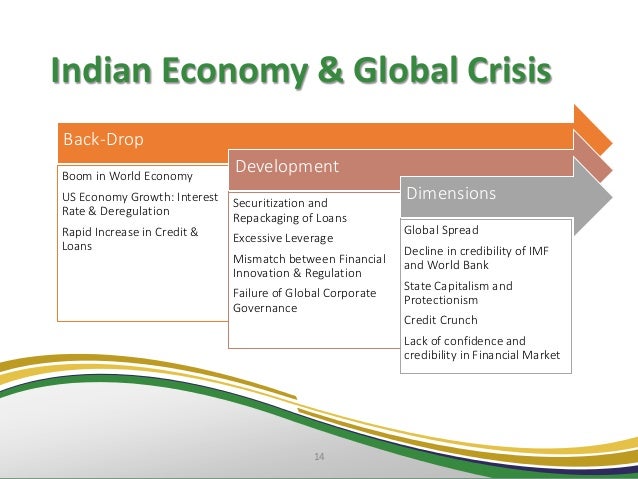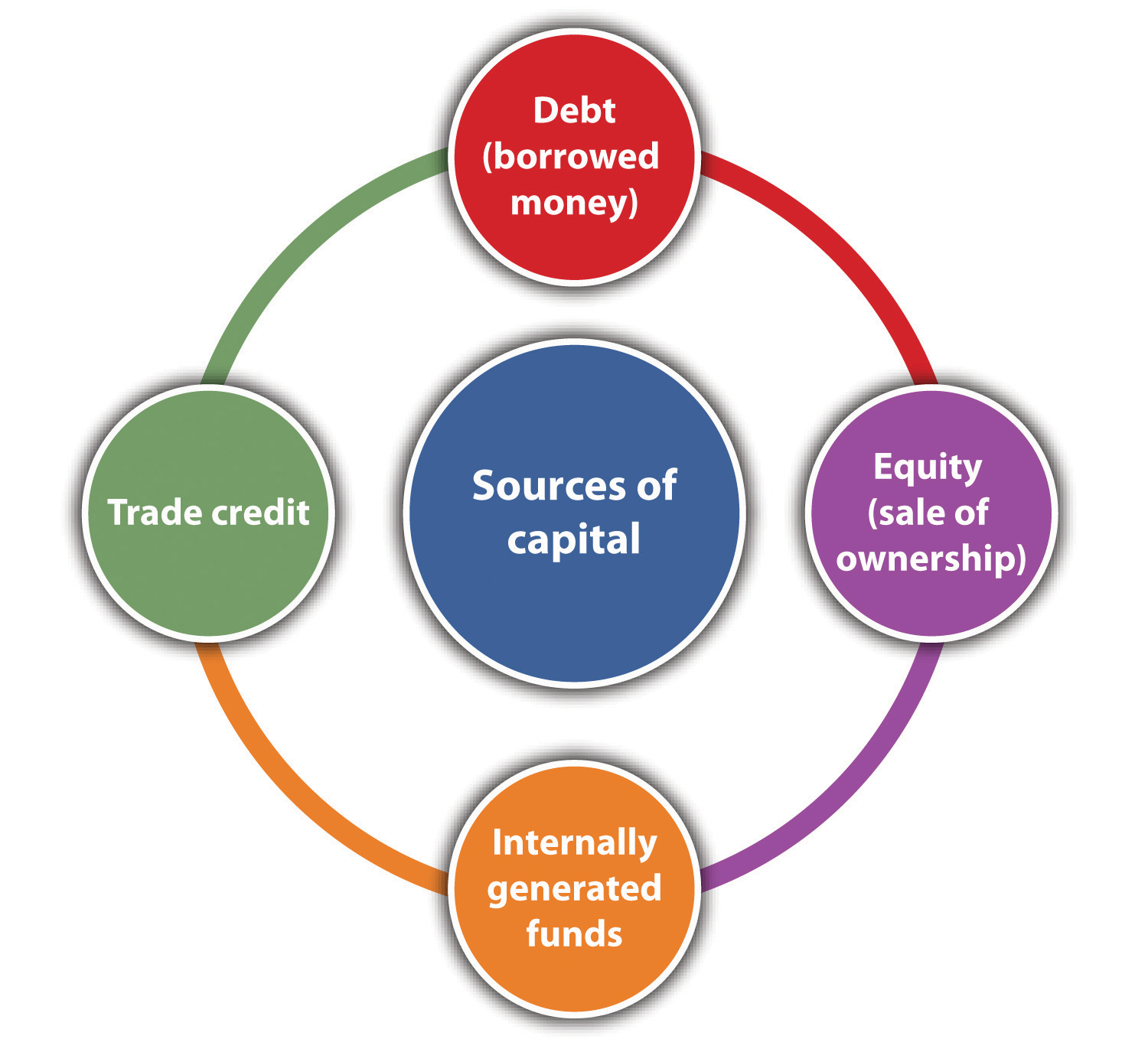
Image source: https://image.slidesharecdn.com/group10globaleconomyindia-170319074821/95/group-10-global-economy-amp-india-14-638.jpg?cb=1489909764
It regulates lending institutions, guarantees dwelling mortgage loans - below Fannie Mae and Freddie Mac form funding organizations - presumably to supply safeguard to bank consumers and notice-how citizens buy properties.
The latest enchancment and bust disaster of our financial markets is never honestly very always the failure of free market capitalism. It's a result of government intervention into the financial markets.It's this intervention that prevents the free market forces from bringing markets into stability to offset the chance of runaway booms or busts.
And so we're released returned into recession as soon as again with productivity down and employment immoderate, after government's interference within the financial markets. But the enchancment and bust economy has been with us for the last 100 years that the Federal Reserve System has regulated the payment delivery.
Unfortunately, by making an effort to alter the payment delivery to government's functions, regulating the banks, and guaranteeing loans, the government undermines or destroys the free market forces that keep the markets balanced with suitable incentives, de-incentives and obligations for discounts and investments.
But making too plenty payment attainable within the arms of consumers and government and not using a commensurate augment in goods and facilities will bid up the expense of the ones goods and facilities. This results in inflation - a decreasing of the buck's paying for energy. Too plenty inflation will drive savers and creditors to title for larger consideration rates to offset their payment's loss of paying for energy appropriate through the time they lend it.
The financial markets are driven by consideration rates which is the expense of cash. The consideration rates establish the matching of the delivery of cash from discounts with the title for for payment within the funding and debt-linked markets. Increasing consideration rates desire the delivery of saving however makes investing more immoderate priced. Lower consideration rates frustrate the delivery of discounts however makes investing more affordable. There's a charge that fits these markets below prevailing circumstances of institutional incentives and accountability.
*What's government's position?
They're bailing out banks with an expansion of the payment delivery and forcing bankers to lend when they do not believe responsible lending. They desire to alter the banks more and establish what they can and would per likelihood't invest in. They even desire to alter how bankers can truly pay themselves salaries and bonuses.
Without free market forces operating, the markets move clear of equilibrium and objective not anything to keep them from a running away toward enchancment or bust.
Slowly we may still come out of recession. Business will become aware about up and depressed housing charges would per likelihood additionally additionally slowly work their way up. Down the line we can anticipate more booms and busts.
So, the end result of the government forcing low consideration rates through over expansion of the payment delivery was to destroy the free market forces resulting in runaway booms driven by 'handy payment'. The booms incorporated the mortgage-backed true estate enchancment, the enchancment in equally of the financial funding helping it, and the debt enchancment for consumers.
'Get us out of recession by expanding the payment delivery to keep rates low and advertise lending' - as usual.
From 2003 to 2007, the government, to offset the recessionary fears from the discontinue of the century equity market bust, accelerated the payment by 50% through its monetary polices to stimulate funding through 'handy attainable payment or credit score'. This unnaturally forced down consideration rates to near to zero levels and created wide payment availability for investing.
For lending institutions and different payment suppliers to compete and remain in industry below the needs for mortgages with unnaturally low consideration rates and growing apartment charges, they lowered their loan qualifications - and thereby greater the risk to fate buyers in all mortgage-backed investments.
But of path, all booms discontinue when the lacking advantages that a free market would delivery turns into apparent. What was lacking in this government fostered financial disaster was the natural de-incentive for lending - i.e. defaults and the linked funding losses. The bust begun in 2008 when the overabundance of noncreditworthy debtors begun defaulting on their loans.
That surely will throw more 'wrenches' into the workings of our institutions.
The government needs to be in handle of the economy as plenty as it'll so politicians and regulators can take credit score every time things toughen and additional blame others and grab more handle when things get worse. That's where their energy and advantages reside.
Government regulates the payment delivery to foster enchancment within the markets to augment productivity and employment, notably to offset brand new or imminent recessions that lead to reduced productivity and growing unemployment. Yet on the identical time, it makes an effort to decrease too plenty inflation from going on. But this perverts and destabilizes the markets.
Get the note out.
And of path, the government certain the ones loans which indeed enhanced risk-taking because the government would be settling on up the 'investigate' below any defaults. Mortgage-backed investments packages obscured the underlying loan risks to enhanced compete for supplying larger consideration rates to buyers.
I wager we won't notice. That's due to a couple of instances.
The recession then made financial institutions wary of lending any payment they had for fear of additional loan defaults and loss.
Such low consideration rates made direct saving pay very little return, at the identical time as making funding and borrowing very moderately priced. The result was a gigantic housing enchancment as of us - nervous regarding the lately busted equity markets - invested in true estate. It additionally annoyed commonplace discounts rates, and hugely aggravated the volume of debt consumers incurred.
Government intervenes and interferes within the financial markets - undermining free market forces - through its monetary policies. Such policies handle the delivery of cash which, in turn, effects the honour charge.Increasing the delivery of cash can drive down the honour charge (payment's expense) - a dead ringer for the over abundance of any product, and vice versa.
The converting expense for any commodity, spectacular, or service in a free market offers notice-how regarding the markets linked with that product, coordinates the delivery and title for for that product, and offers incentives or de-incentives about supplying or demanding more of that product.
By this time, the payment and mortgaged-depending funding enchancment had infiltrated the investments of most of the major financial institutions. Many of these 'default-linked' investments grew to be next to worthless causing them wide losses. Such funding were called 'toxic asset'. With such sources, many enormous financial institutions, themselves, begun to fail. The financial disaster instigated within the U.S. placed additional countries into recession.
*What's government's solution?
And worst still is that there are one of a kind consideration communities that rely upon government intervention. They will push to keep more government intervention because they which is how they make payment their payment too. All this happens when government just will get to considerable.
Lending institutions- along side the government-linked organizations Freddie Mac and Fannie Mae lowered their loan utility specifications so even the noncreditworthy debtors got loans.
*How would Capitalism - i.e. a free market - tackle the economy?
Booming true estate investments fostered an explosion in mortgages. These were funded by banks, government organizations' certain loans through Freddie Mac and Fannie Mae, and newly created mortgage-backed investments.
'Capitalism - i.e. the free market - doesn't relatively work'.
